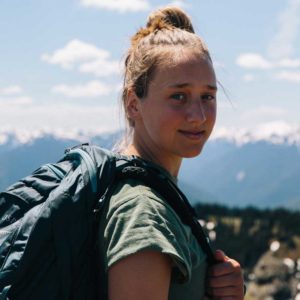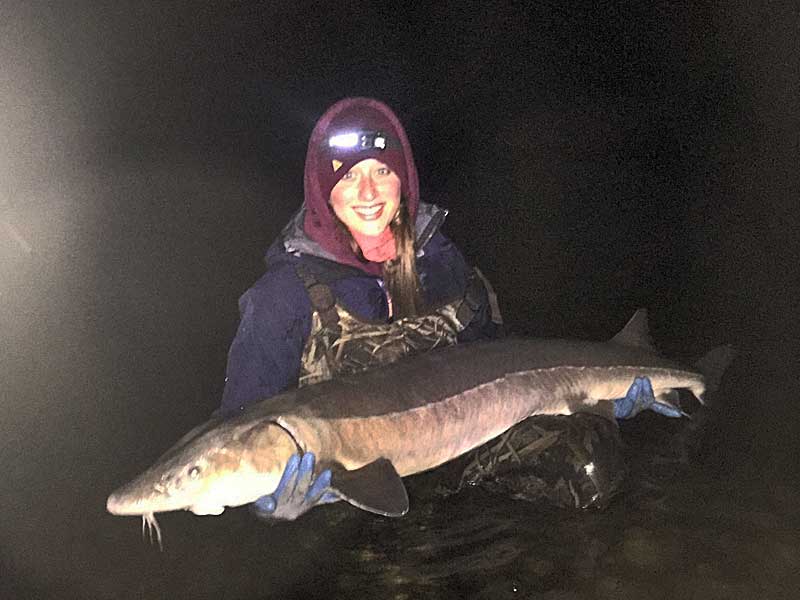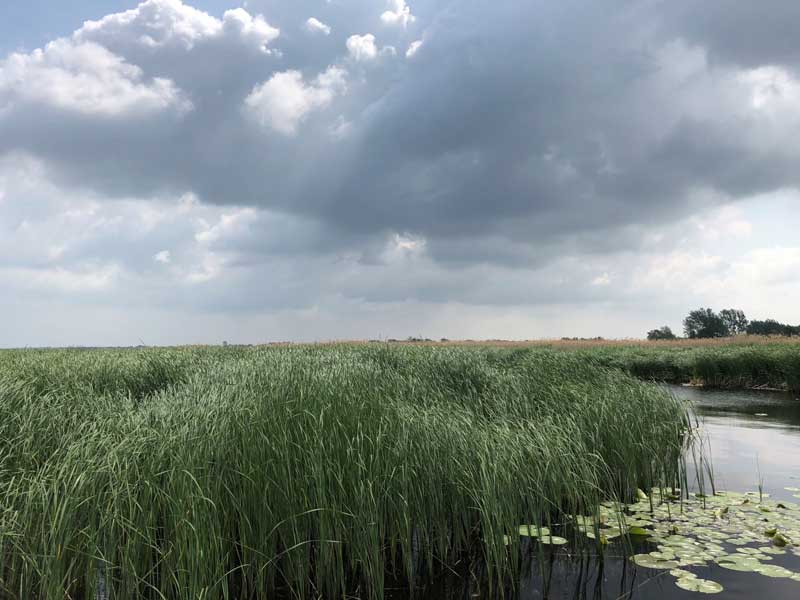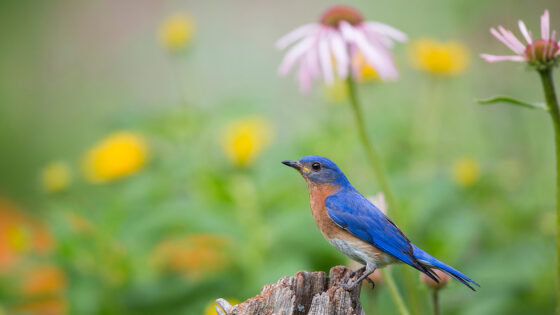Maria Scarborough spent her first day of work at Stroud Water Research Center dressed like one of the Ghostbusters with a pack strapped to her back. Instead of hunting for ghosts this spooky season, she and her fellow staff scientists were electrofishing in a stream and sorting through buckets of American eel, eastern blacknose dace, and rosyside dace.
A former Stroud Center intern, Scarborough has returned to work for John Jackson, Ph.D., full-time in the Entomology Group. “I want to use the skills I learn here to protect the life in and around lakes and streams,” she says.
Scarborough hails from Grand Rapids, Michigan, which is about 45 minutes from what she calls “the most beautiful lake in the world,” Lake Michigan.
Westward Journey Changed Her Future

Despite a childhood filled with activities one might expect from a future aquatic entomologist — playing in streams, catching frogs and crayfish, and splashing around in rain boots — Scarborough initially started her college career as a pre-dental student. She completed her freshman year. Then, she took a year off and set out on a journey westward that would completely change her future.
That year, she backpacked and hitchhiked from San Diego to Portland and back. “On this trip, I was able to see firsthand the impact that drought was having on local communities, agriculture, and wildlife. It was hard to comprehend the complete absence of water considering I come from a place where fresh water literally surrounds you. I realized that living in Michigan was a huge privilege, and that the water of the world needed protecting. So I returned home, changed my major, and never looked back!”
Following a Passion for Fresh Water
After graduating from Grand Valley State University in Allendale, Michigan, with a degree in biology and an emphasis in aquatic ecology, Scarborough worked for the Gun Lake Tribe of Pottawatomi Indians, sampling adult lake sturgeon, on the Kalamazoo River. She then went on to work for the Robert B. Annis Water Resources Institute in Muskegon, Michigan, sampling coastal wetlands.



“We studied the fish, invertebrates, and water chemistry at various wetland vegetation zones all throughout Lake Michigan and Lake Huron. This is where my recent passion for wetlands comes from. As part of my senior thesis that continued into my job with the institute, I also looked at the diet and feeding rate of brown trout and mottled sculpin in a cold water stream in Michigan.”
Since working at the Stroud Center, she has been interested in comparing the invertebrates she sampled in Michigan to the ones she’s found in Pennsylvania.
Dipping her hands into a bucket of cold streamwater and cupping a tiny mayfly, Scarborough says, “This planet is so beautiful, and I just don’t ever want to catch myself taking it for granted.”



